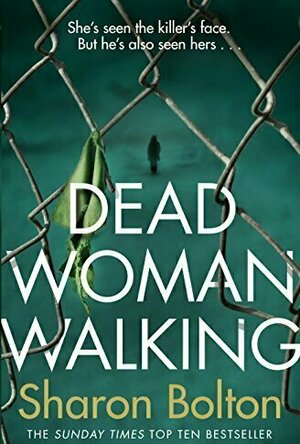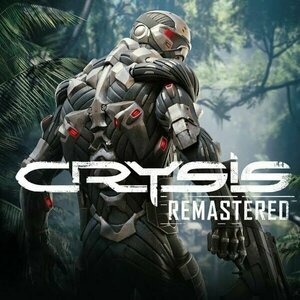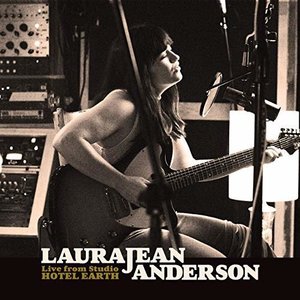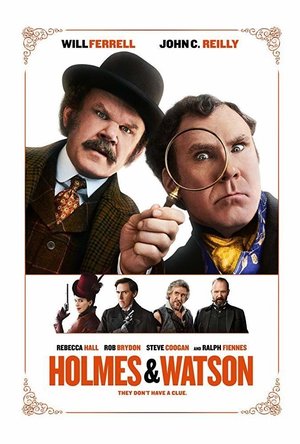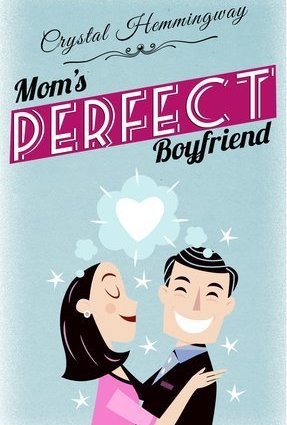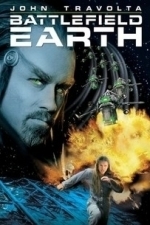Search
Search results
BookInspector (124 KP) rated Dead Woman Walking in Books
Sep 24, 2020
I had to try quite a bit for this book to reach my hands, once I got it, I simply savoured reading every page of it. Like many S.J. Bolton’s creations, this book is astonishing, amazingly twisty and has a fantastic plot. It is not very easy to write a review of this book. Have you seen the description? It is quite short, isn’t it? Well, there is a reason why. One wrong sentence, and it will be a “spoiler alert”. That’s right; the book starts with an air balloon trip. And then, the first murder of the book happens. All people on the balloon saw it happen, then, the air balloon goes down, and only one person survives. And she runs, runs for her life.
The main characters of the book were sisters – Jessica and Isabel. Straight from the beginning it was clear, that Isabel, was a nun. Both of these characters are very interesting and strong women. They have some issues from the past to deal with. I loved that author allowed the readers to see every aspect of the book from different angles. It was not a story told by one character; all main characters had their voice, and were able to tell the story from their perspectives. That made the book way more intriguing, and more pleasant to read. It also helped to understand the characters way better.
The plot of this book is very well thought through. The story time travels between past and presence, bringing twist after twist into the story. When you think you get used to the course of action, the author creatively brings another turn into the plot. And it does not stop till the last sentence of the book. The author unfolds the characters throughout the book very nicely, where everything falls into their places eventually. If you had a pleasure to read “Dark and twisted tide” by this author, you might find some similar topics discussed, which are very important issue in our modern society, and I’m grateful , that author is bringing attention to the problems discussed in this book. You will have to read the book to find out what it was…
The suspense in this novel is well kept with short chapters, and easy to read writing style. Those unread pages of this book are just melting in your hands, because it is really fast paced, and the switch between characters makes it a real page turner. The ending of this book is unexpected, and as I mentioned before, keeps the surprise factor till the last sentence. So, to conclude, it is yet another fantastic job of this author, and an absolute MUST READ.
The main characters of the book were sisters – Jessica and Isabel. Straight from the beginning it was clear, that Isabel, was a nun. Both of these characters are very interesting and strong women. They have some issues from the past to deal with. I loved that author allowed the readers to see every aspect of the book from different angles. It was not a story told by one character; all main characters had their voice, and were able to tell the story from their perspectives. That made the book way more intriguing, and more pleasant to read. It also helped to understand the characters way better.
The plot of this book is very well thought through. The story time travels between past and presence, bringing twist after twist into the story. When you think you get used to the course of action, the author creatively brings another turn into the plot. And it does not stop till the last sentence of the book. The author unfolds the characters throughout the book very nicely, where everything falls into their places eventually. If you had a pleasure to read “Dark and twisted tide” by this author, you might find some similar topics discussed, which are very important issue in our modern society, and I’m grateful , that author is bringing attention to the problems discussed in this book. You will have to read the book to find out what it was…
The suspense in this novel is well kept with short chapters, and easy to read writing style. Those unread pages of this book are just melting in your hands, because it is really fast paced, and the switch between characters makes it a real page turner. The ending of this book is unexpected, and as I mentioned before, keeps the surprise factor till the last sentence. So, to conclude, it is yet another fantastic job of this author, and an absolute MUST READ.
Gareth von Kallenbach (980 KP) rated the PC version of Crysis Remastered in Video Games
Oct 8, 2020
Back in 2007 EA released Crysis which touted a new gaming engine and state of the art technology. The game inspired sequels but many people found the game ran clunky on their PCs as the new engine had some pretty hefty technology requirements.
In the age of remasters gamers now can experience the game with remastered graphics which brings the graphics in the game to a more modern level.
Players play a member of an elite unit who wear specialized Nano Suits during high-risk missions. The suits can make the wearer invisible, move faster, and armor up to absorb energy. The biggest issue is that those abilities do take a considerable amount of power and can only be used for brief increments so players will have to use them strategically.
When a mission goes wrong players must attempt to battle hordes of North Korean troops and other threats to achieve various goals and mission objectives.
Players will be able to utilize an arsenal of weapons ranging from pistols, shotguns, machine guns, grenades, and their fists and must make sure to use ammunition wisely as the supply is not infinite and players will have to recover weapons from enemies when they deplete their ammunition or resort to using their fists until they can find resupply options.
While the game does look more modern, the gameplay is still jerky especially in combat. Compared to modern shooters the smoothness and speed factor is lacking and it at times has a herky-jerky gameplay to it. Being able to cleanly shoot an enemy is erratic as some are real bullet sponges while others in the same class go down fairly easily.
The game also uses a checkpoint save system so failing to complete an objective will have players trying a scenario repeatedly until they are successful.
Players will also be able to utilize vehicles that they find which can help when they need to make a fast escape from a location or if they opt to make a direct assault.
The sound and graphics of the game are solid but the gameplay was decidedly retro and had many of the issues that bothered me with the original release. I had hoped for a total redo but in many ways it was like slapping a new coat of paint on an old car and expecting top of the line performance.
Crysis: Remastered is a nice trip down memory lane but pails when compared to more modern games in terms of enjoyment as I think a new game in the series would have been better. Perhaps this is a way to test what the current demand for the franchise is. For now the game is a nice piece of updated nostalgia.
In the age of remasters gamers now can experience the game with remastered graphics which brings the graphics in the game to a more modern level.
Players play a member of an elite unit who wear specialized Nano Suits during high-risk missions. The suits can make the wearer invisible, move faster, and armor up to absorb energy. The biggest issue is that those abilities do take a considerable amount of power and can only be used for brief increments so players will have to use them strategically.
When a mission goes wrong players must attempt to battle hordes of North Korean troops and other threats to achieve various goals and mission objectives.
Players will be able to utilize an arsenal of weapons ranging from pistols, shotguns, machine guns, grenades, and their fists and must make sure to use ammunition wisely as the supply is not infinite and players will have to recover weapons from enemies when they deplete their ammunition or resort to using their fists until they can find resupply options.
While the game does look more modern, the gameplay is still jerky especially in combat. Compared to modern shooters the smoothness and speed factor is lacking and it at times has a herky-jerky gameplay to it. Being able to cleanly shoot an enemy is erratic as some are real bullet sponges while others in the same class go down fairly easily.
The game also uses a checkpoint save system so failing to complete an objective will have players trying a scenario repeatedly until they are successful.
Players will also be able to utilize vehicles that they find which can help when they need to make a fast escape from a location or if they opt to make a direct assault.
The sound and graphics of the game are solid but the gameplay was decidedly retro and had many of the issues that bothered me with the original release. I had hoped for a total redo but in many ways it was like slapping a new coat of paint on an old car and expecting top of the line performance.
Crysis: Remastered is a nice trip down memory lane but pails when compared to more modern games in terms of enjoyment as I think a new game in the series would have been better. Perhaps this is a way to test what the current demand for the franchise is. For now the game is a nice piece of updated nostalgia.
Bong Mines Entertainment (15 KP) rated Live From Studio Hotel Earth by Laura Jean Anderson in Music
Jun 25, 2019
Laura Jean Anderson is an LA-based singer-songwriter from Olympia, Washington. Not too long ago, she released an EP of live in-studio tracks, entitled, “Live From Studio Hotel Earth”.
The 6-track project contains songs from her debut EP, entitled, “Lonesome No More”, alongside a cover of The White Stripes’ “I’m Lonely (But I Ain’t That Lonely Yet)” single.
“I miss my mother, I miss being her one. As crazy as I was, I guess I wasn’t much fun. Sometimes, I miss her so much, want to hop on the next jet. I get lonely, but I ain’t that lonely yet.” – lyrics
‘I’m Lonely (But I Ain’t That Lonely Yet)’ tells a depressing tale of a young woman who is in need of human contact. Apparently, she doesn’t want to bother her loved ones, therefore, she doesn’t tell them that she misses them.
Later, she admits that sometimes she wants to give them a call, but doesn’t want to feel like a pest. Even though she feels regret for being desolate, she keeps on keeping on. What she really wants is to find a friend, someone who she can talk to one on one.
‘I’m Lonely (But I Ain’t That Lonely Yet)’ contains a gloomy storyline, ear-welcoming vocals, and guitar-driven instrumentation flavored with sentimental blues and folk elements.
“Making a record and having the vast possibilities of production and instrumentation is exciting, but there is something special about limitation. This live EP brings the songs back to how they were written. Back to those intimate moments of writing alone late at night with just me and my guitar. These songs are really personal to me. All about very vivid moments and stories of my life so being able to record them stripped-down and intimately was really emotional but beautiful. The day of the recording was really special for me. I’m a huge believer in the power of a community of people. So it was really special having my old friend Theo Karon record this in his new studio.” – Laura Jean Anderson
Laura Jean Anderson had a strict Mormon upbringing. During her teenage years, she used music as an outlet for rebellion and enhanced her vocal skill in church choirs.
After a bronchitis-ridden audition, she gained acceptance to California Institute of the Arts (CalArts), where she studied classical voice.
Since then, she has gained experience as a blue collared musician who built her career working odd jobs which involved painstaking hard labor.
Get acquainted with her music by streaming her “Live From Studio Hotel Earth” EP via Spotify.
Laura Jean Anderson recorded her “Live From Studio Hotel Earth” EP in one-take.
Also, this summer, she will embark on a tour as direct support with L.A. alt-rock outfit Grizfolk.
The 6-track project contains songs from her debut EP, entitled, “Lonesome No More”, alongside a cover of The White Stripes’ “I’m Lonely (But I Ain’t That Lonely Yet)” single.
“I miss my mother, I miss being her one. As crazy as I was, I guess I wasn’t much fun. Sometimes, I miss her so much, want to hop on the next jet. I get lonely, but I ain’t that lonely yet.” – lyrics
‘I’m Lonely (But I Ain’t That Lonely Yet)’ tells a depressing tale of a young woman who is in need of human contact. Apparently, she doesn’t want to bother her loved ones, therefore, she doesn’t tell them that she misses them.
Later, she admits that sometimes she wants to give them a call, but doesn’t want to feel like a pest. Even though she feels regret for being desolate, she keeps on keeping on. What she really wants is to find a friend, someone who she can talk to one on one.
‘I’m Lonely (But I Ain’t That Lonely Yet)’ contains a gloomy storyline, ear-welcoming vocals, and guitar-driven instrumentation flavored with sentimental blues and folk elements.
“Making a record and having the vast possibilities of production and instrumentation is exciting, but there is something special about limitation. This live EP brings the songs back to how they were written. Back to those intimate moments of writing alone late at night with just me and my guitar. These songs are really personal to me. All about very vivid moments and stories of my life so being able to record them stripped-down and intimately was really emotional but beautiful. The day of the recording was really special for me. I’m a huge believer in the power of a community of people. So it was really special having my old friend Theo Karon record this in his new studio.” – Laura Jean Anderson
Laura Jean Anderson had a strict Mormon upbringing. During her teenage years, she used music as an outlet for rebellion and enhanced her vocal skill in church choirs.
After a bronchitis-ridden audition, she gained acceptance to California Institute of the Arts (CalArts), where she studied classical voice.
Since then, she has gained experience as a blue collared musician who built her career working odd jobs which involved painstaking hard labor.
Get acquainted with her music by streaming her “Live From Studio Hotel Earth” EP via Spotify.
Laura Jean Anderson recorded her “Live From Studio Hotel Earth” EP in one-take.
Also, this summer, she will embark on a tour as direct support with L.A. alt-rock outfit Grizfolk.
Emma @ The Movies (1786 KP) rated Holmes and Watson (2018) in Movies
Sep 25, 2019
This film wasn't without some laughs. With its witty caption at the very beginning followed by quite an entertaining scene where Holmes and Watson first meet I had some hopes that the feedback I'd been hearing was a little over played. By the end of the film however... well I can count the amount of times I laughed out loud on one hand. As a 90 minute film with two of those laughs coming right at the beginning it's not exactly amazing.
But... there's always a but... I'm not really a fan of repetetive humour. There are a few scenes that rely on the same gag over and over, that's just not my sort of thing. There is certainly an audience out there for this film, it just wasn't me.
I'm not particularly a fan of Will Ferrell or John C Reilly, they produce entertaining characters but they're not generally names that will have me running out straight away to see something. In such a mediocre film though John C Reilly has managed to pull out a great performance. It doesn't feel like he's hamming it up quite as much as Ferrell and for the most part he's great on screen.
There are a few cameo parts involved. Steve Coogan was given quite a good part to play, and Pam Ferris as Queen Victoria seemed to come out of it alright too. It's coming again... but... Hugh Laurie's piece, well it's not what we're used to from him or Mycroft.
One of the things I love is the mid-air mind calculations in Holmes related things and thankfully this film does them in a rather amusing way. We're treated to a few, although my personal favourite came from the mind of Watson. From his solution I'm going to say that there's a little bit of Watson in most of us.
Mini spoiler alert... there's a musical number. I slumped in my seat a bit when it started. Don't panic though, it was actually quite good. I feel like they might be able to get a music video out of it somewhere.
What you should do
My gut reaction is that this sort of film is a bit Marmite. If you enjoy their sort of humour then you'll enjoy it, if not then you'll probably get a handful of laughs out of it like I did. It's definitely a streamer, get some friends over, order some pizza and pour some drinks. In that scenario I think most people would find it amusing.
Movie thing you wish you could take home
I would honestly love the picture that Millie draws for Holmes.
But... there's always a but... I'm not really a fan of repetetive humour. There are a few scenes that rely on the same gag over and over, that's just not my sort of thing. There is certainly an audience out there for this film, it just wasn't me.
I'm not particularly a fan of Will Ferrell or John C Reilly, they produce entertaining characters but they're not generally names that will have me running out straight away to see something. In such a mediocre film though John C Reilly has managed to pull out a great performance. It doesn't feel like he's hamming it up quite as much as Ferrell and for the most part he's great on screen.
There are a few cameo parts involved. Steve Coogan was given quite a good part to play, and Pam Ferris as Queen Victoria seemed to come out of it alright too. It's coming again... but... Hugh Laurie's piece, well it's not what we're used to from him or Mycroft.
One of the things I love is the mid-air mind calculations in Holmes related things and thankfully this film does them in a rather amusing way. We're treated to a few, although my personal favourite came from the mind of Watson. From his solution I'm going to say that there's a little bit of Watson in most of us.
Mini spoiler alert... there's a musical number. I slumped in my seat a bit when it started. Don't panic though, it was actually quite good. I feel like they might be able to get a music video out of it somewhere.
What you should do
My gut reaction is that this sort of film is a bit Marmite. If you enjoy their sort of humour then you'll enjoy it, if not then you'll probably get a handful of laughs out of it like I did. It's definitely a streamer, get some friends over, order some pizza and pour some drinks. In that scenario I think most people would find it amusing.
Movie thing you wish you could take home
I would honestly love the picture that Millie draws for Holmes.
Becs (244 KP) rated Mom's Perfect Boyfriend in Books
Sep 4, 2019
Not what I was expecting but overall decent read
You can also find this review on my blog: bookingwayreads.wordpress.com
TRIGGER WARNINGS: fixation on weight and appearance
Review:
Thank you to Galbadia Press for sending me an Advanced Reader's Copy of Mom's Perfect Boyfriend for review purposes and my honest opinion.
Mom's Perfect Boyfriend is a fast-paced romantic comedy set in an epistolary format that tells the story of a mother-daughter relationship and the pitfalls of trying to please overly demanding parents. It's told through mostly emails, texts, and journal entries and makes for a perfect summer read! It released on July 16, 2019 and is similar to Where'd You Go, Bernadette and Bridget Jones. Mom's Perfect Boyfriend is also perfect for those who are fans of Sophie Kinsella and Meg Cabot.
Crystal and her mother, Margot are at the core of this story and it follows their relationship with one another and others. Margot is a bit demanding of her daughter Crystal, calling and texting all the time. She wants to be in the middle of everything in Crystal's life but Crystal wants limits and to live her own life without having an overbearing mother. One day her boyfriend leaves on an adventure by himself and Crystal loses her job, resulting in her having to move back in with her mom.
I ended up giving Mom's Perfect Boyfriend a 3.5 out of 5 star rating because I found it to be a really strange read. It wasn't a bad type of strange, but I also don't think it was generally a style of book I'd normally pick up.
This was supposed to be a book about a cyborg boyfriend and that didn't come into play until almost halfway through the book. Once it did though, nothing really interesting happened. This wasn't a detriment though as I stilled pretty much enjoyed the read. I did enjoy watching Crystal and Margot grow not only closer but also within themselves as well. They both had their own journeys and watching them navigate through their relationship was a fun perspective!
Mom's Perfect Boyfriend was a fun read at times but I also found it a bit boring in other parts. One thing that really urked me was how the characters fixated on their weights and appearances and I know that's a reality that most people go through, but it was a bit too much at times.
When I first read the synopsis of Mom's Perfect Boyfriend I was intrigued and was not expecting how the story actually unfolded. It was fun in parts and the messages were comical at times. The pacing could have used a bit of oomph, but the different formats provided an easy and light read.
TRIGGER WARNINGS: fixation on weight and appearance
Review:
Thank you to Galbadia Press for sending me an Advanced Reader's Copy of Mom's Perfect Boyfriend for review purposes and my honest opinion.
Mom's Perfect Boyfriend is a fast-paced romantic comedy set in an epistolary format that tells the story of a mother-daughter relationship and the pitfalls of trying to please overly demanding parents. It's told through mostly emails, texts, and journal entries and makes for a perfect summer read! It released on July 16, 2019 and is similar to Where'd You Go, Bernadette and Bridget Jones. Mom's Perfect Boyfriend is also perfect for those who are fans of Sophie Kinsella and Meg Cabot.
Crystal and her mother, Margot are at the core of this story and it follows their relationship with one another and others. Margot is a bit demanding of her daughter Crystal, calling and texting all the time. She wants to be in the middle of everything in Crystal's life but Crystal wants limits and to live her own life without having an overbearing mother. One day her boyfriend leaves on an adventure by himself and Crystal loses her job, resulting in her having to move back in with her mom.
I ended up giving Mom's Perfect Boyfriend a 3.5 out of 5 star rating because I found it to be a really strange read. It wasn't a bad type of strange, but I also don't think it was generally a style of book I'd normally pick up.
This was supposed to be a book about a cyborg boyfriend and that didn't come into play until almost halfway through the book. Once it did though, nothing really interesting happened. This wasn't a detriment though as I stilled pretty much enjoyed the read. I did enjoy watching Crystal and Margot grow not only closer but also within themselves as well. They both had their own journeys and watching them navigate through their relationship was a fun perspective!
Mom's Perfect Boyfriend was a fun read at times but I also found it a bit boring in other parts. One thing that really urked me was how the characters fixated on their weights and appearances and I know that's a reality that most people go through, but it was a bit too much at times.
When I first read the synopsis of Mom's Perfect Boyfriend I was intrigued and was not expecting how the story actually unfolded. It was fun in parts and the messages were comical at times. The pacing could have used a bit of oomph, but the different formats provided an easy and light read.
Phillip McSween (751 KP) rated Battlefield Earth (2000) in Movies
Oct 2, 2019
Ight Imma Head Out
When an alien species takes over Earth, the humans finally decide to rise up and fight back. Watching Battlefield Earth is like taking a shit that just doesn’t want to come out. It’s frustrating, it’s messy, and it only serves to screw up your day. In fact, this movie is so painful that I am forcing myself to watch it until I finish this review. Man, you should see how fast I’m typing right now.
Acting: 3
Less than two minutes in, the movie has one of those bloodcurdling “NO!” screams after main character Jonnie Goodboy Tyler (Barry Pepper) finds out someone close to him has died. That’s when I remember saying to myself: “What the hell did I just get myself into? I gotta sit through the rest of this?” You would think, “Well, it’s only uphill from here.” You, madam or sir, would be wrong. From John Travolta and Forest Whitaker’s painful performances as aliens to the rest of this horrid cast, I can’t really decide who did the worst job. I gave them a 3 because, well, I’m assuming they showed up on set everyday.
Beginning: 0
Cinematography/Visuals: 3
Fast forward to four minutes after the “scream”. You see a bunch of cavemen (ish) beating up a prop from a broken down minigolf fun center. You see this happening with weird cut shots and slow motion, all while focusing on the anger and intent of the cavemen who see it as a threat. It is quite possibly one of the dumbest scenes I have seen in film. It angers me even now just thinking about it.
Conflict: 6
Entertainment Value: 0
Memorability: 0
The only thing I need to remember is this movie is garbage and to run if someone ever mentions watching it. There is nothing about this movie I will ever treasure.
Pace: 2
Let me watch paint dry and see if I’m not more entertained. My wife captured a caterpillar in a jar recently because she thinks it may become a butterfly. I’m pretty sure it’s dying because it only moves an inch every few hours. That inch outpaces the speed at which this movie drags along. Give me the DMV. Give me the longest wait at any Disneyworld ride. Give me the lines for the 2008 voting stations. I will take any of these things over Battlefield Earth.
Plot: 0
Resolution: 1
Ended just like it began: As a failed movie with no redeeming qualities whatsoever.
Overall: 17
I usually don’t judge people on tastes. We’re all different and we all like different things. But if you enjoyed this movie in any shape or fashion and you profess to be my friend, please lose my number. The passion with which I hate this movie has no end.
Acting: 3
Less than two minutes in, the movie has one of those bloodcurdling “NO!” screams after main character Jonnie Goodboy Tyler (Barry Pepper) finds out someone close to him has died. That’s when I remember saying to myself: “What the hell did I just get myself into? I gotta sit through the rest of this?” You would think, “Well, it’s only uphill from here.” You, madam or sir, would be wrong. From John Travolta and Forest Whitaker’s painful performances as aliens to the rest of this horrid cast, I can’t really decide who did the worst job. I gave them a 3 because, well, I’m assuming they showed up on set everyday.
Beginning: 0
Cinematography/Visuals: 3
Fast forward to four minutes after the “scream”. You see a bunch of cavemen (ish) beating up a prop from a broken down minigolf fun center. You see this happening with weird cut shots and slow motion, all while focusing on the anger and intent of the cavemen who see it as a threat. It is quite possibly one of the dumbest scenes I have seen in film. It angers me even now just thinking about it.
Conflict: 6
Entertainment Value: 0
Memorability: 0
The only thing I need to remember is this movie is garbage and to run if someone ever mentions watching it. There is nothing about this movie I will ever treasure.
Pace: 2
Let me watch paint dry and see if I’m not more entertained. My wife captured a caterpillar in a jar recently because she thinks it may become a butterfly. I’m pretty sure it’s dying because it only moves an inch every few hours. That inch outpaces the speed at which this movie drags along. Give me the DMV. Give me the longest wait at any Disneyworld ride. Give me the lines for the 2008 voting stations. I will take any of these things over Battlefield Earth.
Plot: 0
Resolution: 1
Ended just like it began: As a failed movie with no redeeming qualities whatsoever.
Overall: 17
I usually don’t judge people on tastes. We’re all different and we all like different things. But if you enjoyed this movie in any shape or fashion and you profess to be my friend, please lose my number. The passion with which I hate this movie has no end.

SyncML PRO 4
Productivity and Business
App
Please read the following desciption before buying this app! SyncML PRO 4 is a niche app, suitable...

Brainwave Studio
Health & Fitness and Productivity
App
Stressed out? Trouble sleeping? Distracting sounds at work or school? Need a relaxing break from a...

follow.trail
Games
App
Follow.trail is a minimalist puzzle game, where the goal is to follow the trail of dots without...
